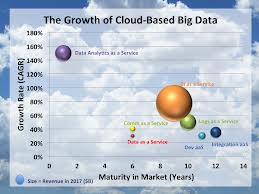Brian T. Horowitz | Eweek
In 2013, the health care industry will continue to adjust to the BYOD phenomenon and further implement telehealth and software as a service platforms, industry experts say.

Despite the security concerns of IT managers, in 2013 health care professionals will continue to adopt their own smartphones and tablets in health care as the bring your own device phenomenon continues to grow, said health care IT experts. BYOD issues have included privacy, security, help desk challenges, limited data-entry capabilities and “hidden licensing costs for virtualization and software,” leaving the economics of BYOD to not work well for health care providers, according to Dennis Schmuland, chief health strategy officer for U.S. Health and Life Sciences at Microsoft. In 2013, health care organizations will find better solutions to the security and privacy challenges of BYOD, Schmuland told eWEEK during a recent meeting in New York. “I think that many organizations have opened up the floodgates to a number of devices, and all these devices are running loose in their organizations and able to access protected health information,” said Schmuland. “The tools available to manage those devices and ensure that they meet compliance and security requirements will become much better in 2013.”
Telehealth, Analytics to Aid Chronic Condition Management
As health care companies continue to invest in analytics software, doctors will have a better handle on managing chronic conditions and following the health patterns of a population. In addition, telehealth services such as American Well’s Online Care and Cisco’s TelePresence will aid doctors in managing patients’ conditions remotely. “Consumers are getting more familiar with video conferencing technology,” Lynne Dunbrack, program director of connected health IT strategies at IDC Health Insights, told eWEEK. “Mobile phones have video chat and laptops have Webcams built in—consumers will start to want to use [telehealth and video conferencing].” Sending a blood pressure reading and seeing a doctor online could be more convenient than taking off from work, Dunbrack noted. “If you can just go in and have these quick visits, people would be more apt to make these appointments and keep them, and organizations will start to experiment with these services,” said Dunbrack. In 2013 insurance providers will increasingly adopt analytics tools, according to Richard Cramer, chief health care strategist for Informatica, a data-integration software and services company. “Stronger collaboration with providers (not just hospitals but individual physician practices) to get access to more patient data will yield new opportunities for analytics and a focus on wellness initiatives,” Cramer told eWEEK in an email. “I think it’s going to be the year of disruptive telehealth,” added Microsoft’s Schmuland. Before, physicians would use telemedicine to connect with more patients, but now hospitals will also use distance care, he suggested. “Telehealth is now being used more as a vehicle to simply connect the patient with the right resources, providers and teams that they need to improve their health, outcomes and their experience, and to reduce the cost of care,” said Schmuland. Health Care Companies to Adopt More SaaS Health care companies will adopt additional software as a service (SaaS) applications in 2013, according to Dunbrack. In fact, 22.2 percent of health care insurance companies, or payers, are planning to implement cloud services within the next year, she said. Progress has been slow for health care providers and SaaS, but 18.8 percent of providers will implement the cloud within the next 12 months, according to Dunbrack. EHR Space Could Consolidate With 700 to 800 electronic health record (EHR) vendors in the market today, companies in this space may consolidate, according to Dr. Mansoor Khan, CEO of DiagnosisOne, which offers analytics and clinical decision-support applications. “The industry can really only support 20 to 25 [vendors]” Khan told eWEEK. Competing on price will not be sustainable for EHR vendors, he said. “I think there’s going to be a big consolidation,” said Kahn. “Some of the key ones are being bought out by private equities, and I think that will only accelerate in the next year.” However, John Moore, an analyst at Chilmark Research, wrote in an August 2012 blog post that consolidation may not occur in the near future. “The technology has yet to stabilize, significant development investments are still required, and most vendors do not have sufficient market penetration,” Moore wrote. “Better to wait until the dust settles and clearer stratification of the market (who will remain viable, who will not) becomes apparent.”












